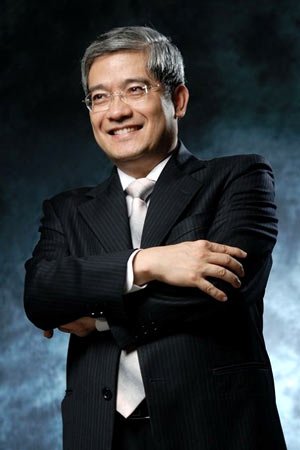最近三个月,看世间百态,人情冷暖,失落与收获都颇多。失落在我出生是纯正的上海郊区农村屌丝,无权无势,白手起家,本以为自己是一个很励志的“屌丝的逆袭”的故事,却硬要被说成一个经过多方神秘势力包装的惊天大阴谋;失落在北京有一个几面之交的“名流友人”,莫名编造了一个内幕,四处传播,让我心寒,我愿怀着善意,相信他是无心的吹水;失落在我自己,太过在意,害怕深文周纳,行文变得谨慎。收获在很多谋面和未曾谋面的朋友仗义执言;虽然都被打成利益集团;收获在十几年前的同学为我说话,虽然因为回忆太远往事,细节互相有偏差被打成诈骗团伙;收获在我看到太多人心和各种面目,以后写小说刻画人物会更加精彩。
人的处事风格和性格不是一成不变的,尤其是16岁到30岁之间。我写过一些不错的文字,也写了不少烂文章,无论状态起伏,无论风格转变,都是一个人的成长历程,谁人能在十四年的青春里保持纹丝不动。我二十岁出头的时候主张抵制日货,是个民族主义者,08年的时候开始反对抵制家乐福,我小时候主张打仗收复台湾,现在都不好意思承认自己这么说过,十七八岁时,我居然说,活着的作家中,写文章论排名老子天下第二,现在想起来都脸红,更让我脸红的是当年我心中那个第一居然是李敖。我少年时装酷,追求语出惊人,这些话现在看来,很多都惹人厌恶,甚至还惹我自己厌恶,把各种傻话挖出来,总会击中不同的人。谁没有年少过,你在宿舍里说过的那些蠢话,你在树林里幼稚的表白,现在拿出来可不都得笑死,没有人永远和过去的自己一致,除非你不再成长。
接触过我的人都知道,我面对生人其实腼腆拘谨。这点从小到现在都未改变。也许我把性格里的另一面都发泄到了赛车和写作中。只要不是被踢走,我在一支车队一效力就是五六年,有合作的地方只要没有意外都会一直合作下去,酒店都选熟悉的住,吃饭永远去那两三家,点的也永远是那几个菜。我性格就是这样。也许因为我选择走的道路太不一样,充满未知,所以我很希望在日常生活里没有变故,不再有陌生的事物。我口才不算好,有人把我十几二十岁时的电视采访都挖了出来,挑了回答的差的问题和木讷的地方拼接在一起,以验证我是一个草包。
是的,大家尽可以挖苦我,嘲弄我,也许有的人在二十来岁的时候上电视能出口成章泰然自若,比我强很多。今天我知道了口无遮拦的代价,知道了年少轻狂的代价,知道了直来直去的代价,知道了不设城府的代价,但明天我还会这样说话,外交辞令永远不会出现在我的嘴里。我在很多地方笨拙,嘴皮子也耍不好,所以我选择了写东西。面对键盘,我拥有我自己的世界,就像我倒车经常撞,停车老停歪,但戴上头盔,坐进赛车,我依然是个好的车手。这就是我的性格。人的性格未必一面,也未必必须符合其他人的设定。每个人的境遇和脾性都是不同的。你不能拿着标尺先裁量自己,再去宣判每个与你尺码不同的他人是伪劣产品。
我反智么?是的,我反弱智,我还反各种束缚人的体制。我学历低,学识差,也有很多的缺点。我有恶趣味,但我最怕无趣,我口无遮拦,但我最恨道貌岸然。我常说错话,得罪人,也常道歉反思。此番我又发现我17岁的书中有一句话错了,那就是七门红灯,照亮我的前程——红灯永远不能照亮你的前程,照亮你前程的,是你的才能。
在很多的采访里,我常说一句话:人,可以不上学,但一定不能停止学习。我也常说,为了避免早期作品中模仿他人的痕迹太重这个缺点,我不再看其他人的小说,但一定不能停止阅读,只有阅读,才会进步。硬要控制信息,断章取义,我也没有办法,也许我们读着不一样的书,走着不一样的路。我只是选择了做自己喜欢的事情,为了写作,我影响了学业,最后退学,为了赛车,我又几乎放弃写作,不计代价,孤注一掷,我运气好,都做的不差。
电脑前的每一个人,我相信造物者一定赋予你们特殊的才能,很多人只是没有发现而已。也许此刻,有很多莫扎特正在编程序,很多舒马赫正在写文案,很多张曼玉正在当前台,很多李开复正在做中介。我只是比很多人幸运,找到了自己喜欢又适合的。同时我也有很多比你们蠢笨的地方,怎么学都学不会。每一个人,纵然缺点一身,但必然有一些地方是长于他人的,那是你区别与他人的标记,也是造物者公平的地方,就看你能否找到这些标记。
没人能让所有人满意,所以让自己和你中意的人满意就可以。你所判定的一切,也许就是你自己内心的投影。人生就是一个不断接纳和抛弃的过程,就是一段迎接冷眼嘲笑孤独前行的旅途。KO不了你的,也许让你更ok,没让你倒下的,也许让你更强大。我也将尽我所能,向在乎我的人创造各种东西,绝不向厌恶我的人解释这是个什么东西。
最后我想到一部电影的结尾。朋友们,愿你带走我身上你们中意的那一部分,踩两脚讨厌的那部分。当你站在城墙上,拥抱着你所喜爱的那部分,回头看到人群里背身远去那个叫韩寒的家伙,不妨说一句,那个人样子好怪,他好像一条狗诶。
分类: 网上文摘
6.26
♂送给♀一个盒子,
♂对♀说:
“我爱上一个女孩,希望你能帮我转达,她就在这个盒子里。”
♀很好奇,打开后发现一面镜子。
两学长同时向一学姐表白,学姐淡定道:“你们周游世界后再回来跟我说。”一学长立马收拾包裹准备出发,另一学长绕学姐转了一圈,说出历史性的一句:“you are my world.”瞬间秒杀……
A:和我一起去旅行吧
B:呵呵,我这么傻,你半路把我卖了怎么办?
A:(笑)把你卖了,卖给谁啊?…..(沉默) 要不卖给我吧,多贵我都要
B: 我真的什么都不会做,你要我什么啊…..
A: 我要你什么,我要你幸福
经年再相逢,魂梦与子同。
I need you in my house, because you are my home.
- 他:我睡不着。
- 她:想什么呢?
- 他:因为你不是我的。
- 她:那你现在可以安心睡了。
1、就算等你老到全身起满皱纹,我也要光着身子把你的裸体抱在怀里。
2、人生这道弧线,有了你才能合成一个圆。
3、和她在一起,你是感觉不到时间在走的。
4、【夜半,在漆黑的小路上牵手走】他:我们可以一直走到世界的尽头。我:嗯,然后亿万颗星星从地平线上升起来。
5、活了快30年我才整明白,原来我要的不是个要把我当公主宠爱的人,也不是要一个超牛逼的能养活我的人。而是需要一个战友,和我并肩朝着这混蛋的人生作战至死。
曾有个人说:我爱你如生命!
觉得在扯淡,心里鄙视很久。
其实最感动的是:别担心,有我在。
树在,山在, 大地在,岁月在, 我在 ,你还要怎样更好的世界? ——张晓风.
从今以后,让我牵着你的手走下去吧~bf言之~
郎咸平:99%的白领家庭未来10年内将面临破产

第一大当:房产
买房意味着什么?意味着你拥有了一个属于自己的房子。是的,你是这样认为,但是在中国你无法拥有这个房子,只是租给你而已。因为房子是你的,地不是你的,只是把土地使用权70年(从现在退70年那是抗日战争时期,谁见过那时候的房子?)。房子通常情况下30年左右就会遇上拆迁或者旧房改造。也就是说你花了买房的钱,却只能得到租房的实际效果。当然这还不是最坏的。最坏的是,当几十年后你发觉上了当!有一群流氓冲进你用一辈子积蓄买下的房子,画上一个大大的”拆”字!然后把你的家当全部当垃圾一样扔出门外,不顾你的苦苦哀求,甚至还在报纸上给你按一个钉子户的臭名,人大众辱骂的时候你就会知道什么叫做绝望!
就好像60年代,人们必须购买三大件:手表、缝纫机、自行车才算是成功人士才可嫁人娶妻。70年代人们必须购买新四大件:电视、电冰箱、洗衣机、电话才算是出人头地才可娶妻生子一样。记得当年装电话可是要几千块钱一部啊(人均收入不到200元的小城),而北京上海更有上万一部的时候,还得排队买号搭人情,和今天的买房又何其相似?
第二大当:就业
当有人终于开始感叹:当年当知青的时候,当有人下岗之后感到没有生路,只能静坐抗议却无人理会,只能沦落街头还别人编首歌嘲笑着人生豪迈,重头再来的时候,你曾想过,他们也曾经和今天的白领一样风光!他们的收入和地位也曾经让周围的人艳羡不已?你可曾想过20年后的今天,你也会和他们一样沦落街头,众叛亲离?!
有人说嘿!你不知道有失业保险、养老保险、XX保险么?呵呵,我在北京漂泊N年,交了无数保险大概有好几万吧,但失业的时候跑断腿也没人给我啥保险,反而很多保险都被冻结了说我交得断断续续的,我简直气得。。。。。。然而即使是这样,家长们还是疯了一样的把孩子往各种企事业国有单位里送,我身边就经常有这样的例子。我老家一个远房亲戚,找关系托朋友,花了七万块钱通过公开招聘把儿子送进了交警队,干上合同制的police,一个月拿800块人民币,结果第三年被竞争上岗给刷了下来。一家人哭哭啼啼的,我说刷了好,你上那班一辈子挣不回那七万,赶紧先洗洗睡,改明再凑点钱做小生意去吧!没准还能赚点。
我就想不明白,中国人咋就这么傻?还有那年纪轻轻的小白领们,找工作最好把薪水要高点,别要医疗保险和啥保险,然后自己把钱存起来最保险,将来用得着。
第三大当:教育
一张文凭值多少钱?印刷成本两块钱顶了天了。一个老师工资多少?嘿,两个学生的学费足够一学期了!一个班的书本印刷多少钱?两个学生的足够了!嘿!中国教育你凭啥收那么多钱!?
嘿!老百姓们!我们为啥要上当?因为从小就告诉我们考上秀才光荣。哦对不起,我说错了,是考上大学才光荣。但老百姓从来不去想一想为什么光荣。。。。。。大学秀才又怎样还不是废物?
你知道你的孩子是什么人在教么?在中国一般是无法适应社会的人才会沦为一个教师,举个例子。前段时间我因为一个项目的关系,找了几个大学的硕士生做程序。结果有几个人笨得很,非得你守着才干活,而且给个文件明显有一个错别字,也不给改,等你发现了还给你较真,这不是他的错,是你给的就是错的。我还是很心平气和的给他们讲道理:你们必须学会为别人思考,思考别人想要什么结果再去做事情,否则无法在社会上生存。结果那几个人说:我们才不要去社会上,我们考试成绩好的很,学校要我们留校做老师。再说了本来我们就没有什么错,你怎么安排我们怎么做,你不安排我们就不做。这是我们的尊严和原则。我说:如果你们去守门,老板没有安排你下班的时候锁好仓库你就不锁了吗?你心寒吗?以后你的孩子就是在这样的人的指导下学习和成长,你放心吗?难怪现在读大学的同居、逃课、打架、自杀……
第四大当:买车
中国人疯了吗?买车?为什么要买车???当然你有了钱花不光了,你爱怎么买就怎么买买车买房,反正油价怎么涨你也花不完钱,房子要拆迁你也不心疼。但是大多数老百姓呢?
说别买车别买车,可就有无数的人疯了一样的去贷款买。买吧,买完了加息不是?油价涨疯了不是?停车又贵了不是?后悔了不是?新车一上路就掉价了,卖也卖不掉了不是??
告诉你,油价还得涨。一定要涨到和美元一样的油价。嘿嘿!你老拿老美的1/10的收入,养和人家一个价的汽油。我看你还得瑟不??
最后说一句,每个人都不傻,都是从小被愚民教育给弄傻了。傻点不要紧,但性命攸关的事儿你还是要紧着点,多盘算盘算经济利益之间的关系!别到头来,房产一跌,油价一涨,交了半辈子钱拿了毕业证书还是啥啥不会干,交了几十年苛捐杂税还啥啥福利没有。你亏的可不仅仅是差价几十万。
当然有的人会说:你连个房子都不买,指定结不了婚。我心想:我是没有,你以为你有啊?有人说租房子不划算,租完了还是别人的。嘿嘿,你以为买房子还是几十年贷款,还清了就是你的了啊……
“中国99%的白领以及他们的家庭即将面临破产。而且是必然破产!无路可逃!这件事可能是发生在未来2-10年。你可以尽量去怀疑这个数字。但它必然发生,绝非危言耸听。” 就如我预言中国国营企业职工必然失业一样,在当时来说没人信。但确实会发生。因为在中国这样一个发展中国家,其必然不断的以通货膨胀和改革手段来换取经济的发展。而每一次改革所带来的阵痛都是由百姓来承担的。无论是上山下乡时迷茫的知青们还是改革开放带来的大量国企纷纷倒闭时大量下岗职工。如果他们能有一定的前瞻性的话,那么我想他们也许会为自己留一点后路。但是由于过分相信文件以及过分相信生活不会突变,所以才导致了他们的人生悲剧。
有人说政府不会坐视不理白领破产,其实政府当然不愿意。可有的事情……怎么说呢。想想当年的下岗职工吧。引起了那么大的社会震动。又能怎样呢?今天的白领明天破产的时候也那样而已。
而改革开放20多年来,中国的经济发展快速腾飞。但旧的体制并没有完全更改。各种重要行业依然施行的是政府垄断机制在运转。如:银行,金融,冶金,能源,信息,运输,医疗,教育,土地。在改革开放初期我国不可能对这些东西进行全方面的改革开放。但到了今天,垄断经营所带来的矛盾日益突出。
首当其冲的就是房地产。由于我国的法制不健全,尤其是金融以及改革领域里出现了各种失误导致房地产节节攀升。随着房地产的增加以及外来人口向大城市集中。所以城市新民工也就是所谓的”白领”收入表面上也在提升,以北京为例3000-15000元人民币的月薪处处可见。但这一部分收入主要用于支付租房或还贷。 为了深入地了解为什么99%的白领家庭会破产,我们就必须先了解房价为什么会这么高?高在哪里?资金是如何运转的?(这里的白领指买房或者准备买房族)以及发展趋势带来的相关效应。本文会分三个阶段向你阐述。
1:导致房价爆涨的第一个因素:银行竞争下的贷款开放。
其实房价的爆涨的因素主要是因为百姓在替政府所犯下的错误买单。比如以前一个开发商通过某银行贷款了1000万开发了一个房子。如果还不起那他就倒霉了,因为所有的银行都是一个体系,你欠了钱没还就再也没有翻身的机会。但是中国在银行改革的基础上开了一条口子,为了各银行之间的竞争所以把工行,农行,建设银行等等全部独立运营。这本来是好事。但问题是这些银行都不是私有的,而是国家的。我们不难想象。当一个开发商从工行贷款1000万的后果。他只需要用500万来开发房子,然后把售价提升,再把这个开发中的房子按他的售价标准抵押从农行再贷款2000万,然后再用这2000万中的1000万开发一套售价更高的房子来找建设银行抵押贷款4000万。就是这样一个滚雪球的疯狂贷款模式。
房子卖不卖得出去不重要,关键是房价要高,不得降价。反正银行的钱不是私人的,所以稍微疏通一下行长加之又有”合法的”高零售价的楼盘做抵押所以自然就越来越好从银行贷款。
那么这样造成的结果就是,房子价格只攀不跌!因为不能跌!一跌银行贷出去的款就再也回不来了。这可是政府的银行,政府的钱!所以为了堵住这个资金黑洞一些被收买的专家、媒介便开始疯狂制造舆论用各种舆论手段威逼利诱人买房子。
比如土地资源严重紧张,再不买房将来就只能住在郊区呀之类的。导致人们不得不去买房。其实住不了市中心这种情况根本不可能发生,城市居民是一个新老替换的过程,要上班的住城里,老人退休喜欢住郊区。只要人口不爆炸就不会出现上班族住不了市中心的情况。虽然这些舆论造成了很多人买房子,但是仅仅是这样,房价还没有高到现在这样的离谱。紧接着政府又犯了第二个错误。
2:导致房价爆涨的第二个错误:中国特色的按揭。
按揭本来是一种西方很流行的制度,也很合适。但这个制度一旦运用到中国就有问题了。因为从大的体制上来说,所有银行都是国家的,而不是私人的。所以贷款这个关口就不可能控制得住。只要文件上说得过去,人们就能贷到款。
为了早日缓解第一个错误所带来的资金黑洞。政府开始实行个人按揭制度来售房。还经常举什么美国老太太和中国老太太的例子来诱惑人们去按揭。确实有人按揭了,而且是疯狂的按揭。只要和银行有点”路子”的人。他们先按揭一套80万的房子,自己出10万首付然后再从银行贷出70万。之后再把这个房子抬高价格到180万出售。这个时候他们的亲戚或者老爸老妈再去买下,也用按揭的方式自己出首付30万再从银行贷出150万。然后就不管了。他们不还贷款怎么办?银行爱收不收。反正根据合同我还不上钱你可以收走房子,我们两不相欠。
所以转了一圈,抬高了几倍价格的房子又回到了政府、回到银行手里。这就解释了为什么很多新楼盘刚开始修就被”炒房团”买走了。他们炒的不是赌房子会升值,而是拿了房子去收拾银行。
银行拿到这个房子怎么办?更不敢降价了。只好再加点价接着卖。所以普通老百姓现在根本别想买到真正合理价格的房子!即使你直接从开发商手里买来的房子都说不定已经转了好几次手又回到银行以及开发商手里的了。说句不好听的,现在8000/平的房子里,只有2500才是房价,有5500都是决策错误带来的资金黑洞!也就是说你正在替人任劳任怨地擦屁股。
3:第三个问题:白领家庭何时破产?
我们研究了房子价格为什么会涨,再来研究一下中国城市所谓的白领家庭破产的必然性。
首先国外白领收入确实是高,但是高得有价值;而中国所谓的白领则普遍素质较差。中国企业内耗严重。人人相轻,人人顽固。所以难怪外资企业一进入中国大陆市场就开始惊呼:”在中国办企业招不到人!”对此我也深有体会。那有人会说:”既然现在的白领不值这个身价,那水木周平你说说为什么他们还能拿到这样的薪水呢?” 其实,这是由于房地产的火爆造成的一个量子效应。银行损失的资金大量的经过少数人之手流向了市场。这些人开始在中国的其他领域疯狂投资。因为他们自己也知道房地产就快要崩盘了。他们这样一轮又一轮的投资热潮正在快速消化这些资金,他们投资互联网,投资高新技术,投资娱乐,投资很多很多。但起码付出的工资要够员工付房子月租或者月供吧。所以正是因为房价的高涨造就了中国城市人口工资水平的相对提升。不相信你自己算算你所在的城市白领阶级平均收入一旦交完每月的房钱,手上还能剩多少钱?我想这个问题就不用我再罗嗦了吧。大家心理有数。所以我可以说一旦房地产崩盘紧接着崩溃的就是你的工资。
有很多很多我认识的白领们都购了房。他们的算盘很简单:”两口子除开各种税收保险每月纯收入还12000。交3000房钱算什么?我还能再买一套呢!”是不算什么。但因为房子贵所以什么东西都贵。吃的贵,交通贵,学费贵,医疗费用更贵!!!所以交了房钱你再除开生活费用就基本上一分钱存不下来,就算存点也赶不上正常的通货膨胀率。问题是如果能一直保持这个现状的话,理论上说应该没事。你这二十年赚来的钱正好可以弥补政府的两个错误带来的亏损。
但问题也出在这里。随着WTO5年缓冲期的结束,大量外资通讯,银行,医疗,保险等等公司都会陆续进入中国。到时候没有人能阻止你把钱存入花旗,存入汇丰。请问一下到那个时候谁愿意把钱存在呆帐坏帐如此之多的中国国有银行呢?即使政府再怎么采取措施也可能挤兑,所以到时候会发生什么现在还很难说。但有一点可以肯定的是到时这些中国国有银行的压力将变得非常巨大。贷款就会难上加难,因为银行根本无钱可贷!同时大量具备高素质人材的外资企业进入中国必定带来市场的强烈冲击和大量现有企业的倒闭以及白领失业。也就是说。一旦外资企业加入竞争,中国现有的99%的白领都将面临大环境下的就业压力!
而且外资银行一旦积累了资金开始投资房地产,那么由于它们是正常的操作流程所以造出来的房子就会便宜,其必然拉动全国房地产大幅下跌。如我刚才所说,房价一跌,紧跟着跌的就是你所在的企业的工资收入!可你之前买的房子还贷价格并不会降低或者减少,所以你将无力支付高昂的贷款。那么你的的房子会被银行收走,你的存款会被直接冻结。所以未来中国城市中的白领们最大的可能是和几十年前的中国国有企业职工一样。辛辛苦苦二十年,到头来竹篮打水一场空!
如何避免破产?
看到这里您应该明白,不要买房是一个避免破产的好办法。不过我还要提醒你,为了托住楼市不跌,他们还有个办法,那就是鼓吹老百姓不买房就不是个爷们儿!您别说,这还真有点效果。现在的人一张口第一句就是:”你有房吗?”似乎你没房就是个太监一样。我实在是气得连骂人的力气都没有了。还有人在百度水木周平这个帖吧里发帖说:”不买房子你住哪里?”我就奇怪了,住和买有必然联系吗?在中国一个土地都不属于你的房子卖给你和租给你有什么区别?
更别提土匪一样的物业和把人不当人的强制拆迁!这不纯粹是”皇帝的新装”吗?不过既然WTO中已经说明出版业和传媒业中国还是不对外开放的。那么舆论救市就会成为政府和开发商手中的最后一张王牌。
所以我们在面对很多花言巧语的时候还是自己多动动脑子。以后我们听到的房产的鬼话会越来越多,越来越令人发指!比如最近就有砖家在鼓吹房价不贵时都说:”即使年薪5万,两口子也是一年10万,5年就50万。所以房价当然不贵。”我奇怪的是居然有人点头称是?也许对于这种或者此类已经进化到了不吃不喝不病不穿不动且爹娘早已死绝不用赡养的砖家来说也许还真是那么回事。所以大家注意提高警惕。
结束语:
已经买房或者准备买房的白领一族必定随着房价的崩溃而崩溃,那会是一个缓慢发生的过程。短则两年,长则十年。但这是不可逆转的趋势。所以中国99%城市白领一族已经面临破产一说绝非危言耸听!今天你往银行交的每一分房钱都是替政府替炒房者补洞,只有一小部分是真正的房钱。明天大环境一变,你没有那么多资金来补洞的时候就会被市场和银行一脚踢回老家,换一批新人来接着补。不信?走着瞧呗!–PS:为什么我说99%这个数,是因为根据我的了解99%的人一旦月薪过5000就开始买房,甚至3000,4000都买。小俩口什么都不明白这样买下去人生一定会很惨。我只是替他们感到忧伤。当然如果你是那1%的智者,多劝救他们吧。独乐乐不如众乐乐。
(东方网)
拿到新的公司offer了,薪水和发展平台都很不错,提离职时老板给予加薪和职位晋升诱惑,你会怎么决定?
那你为什么走呢?如果想明白这个,或许你就知道答案了。
如果还不知道,就找张纸,左边写需要,中间写这个公司能给你什么,右边写新公司能给你什么。
量化,一切答案都在这里。
忠告:打工只能求生存!创业才是唯一的追求!成功才是目标。
忠告:打工只能求生存!创业才是唯一的追求!成功才是目标。
平台有三个:可以创造一个平台;也可以购买一个平台;还可以借用一个平台。
概念的选择:做事(寻求生存);市场(寻求生意);趋势(寻求发展)。选择大于努力!选择不对,努力白费。
改变:改变自己;帮助他人改变;改变环境。只有改变,才能成就自己。
如果你现在感觉很触动,很现实,不放好好的静下心来好好的想想自己的未来在哪里,自己是愿意拿着两三千,三四千的工资安稳的想这样生活着,还是有自己的理想,社会是残酷的,师哥师姐们用他们的亲身体会告诉了我们,再大的理想会在我们打工安稳的工厂生活中给磨灭的!
此时的你不防想想:
1、我的理想是什么?(我想很大一部分同学不知道吧,很盲目,其实我也是)
2、我下一个目标在哪里?(当你把第一个想通的时候,这个就是你眼前摆着的问题,是你拟定计划的开始。)
3、我有能力做什么?(这是一个最关键的问题,但也是一个次要的问题,因为能力是培养的,当你的理想和目标都明确是,只要你坚持不懈的向着自己的理想和目标走去,能力自然就要得到提高!但现在你一定要认清自己的能力,这样才能为自己定好目标。)